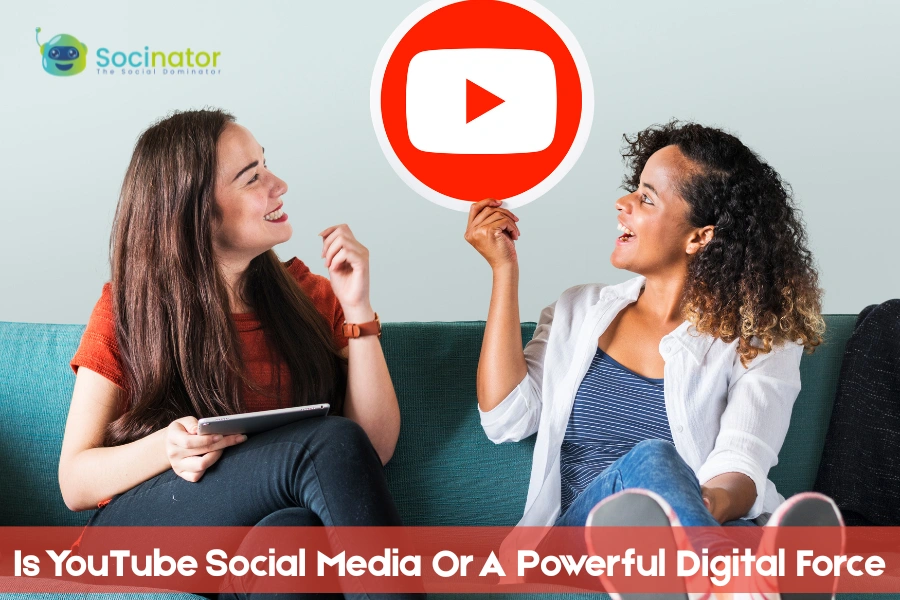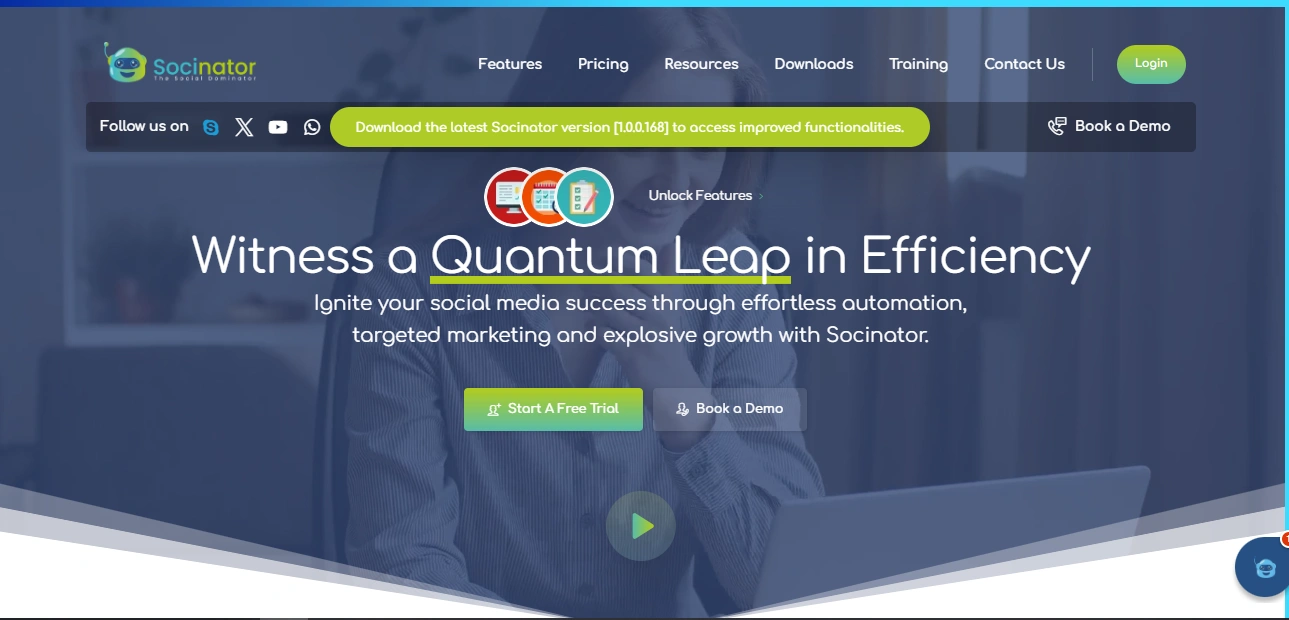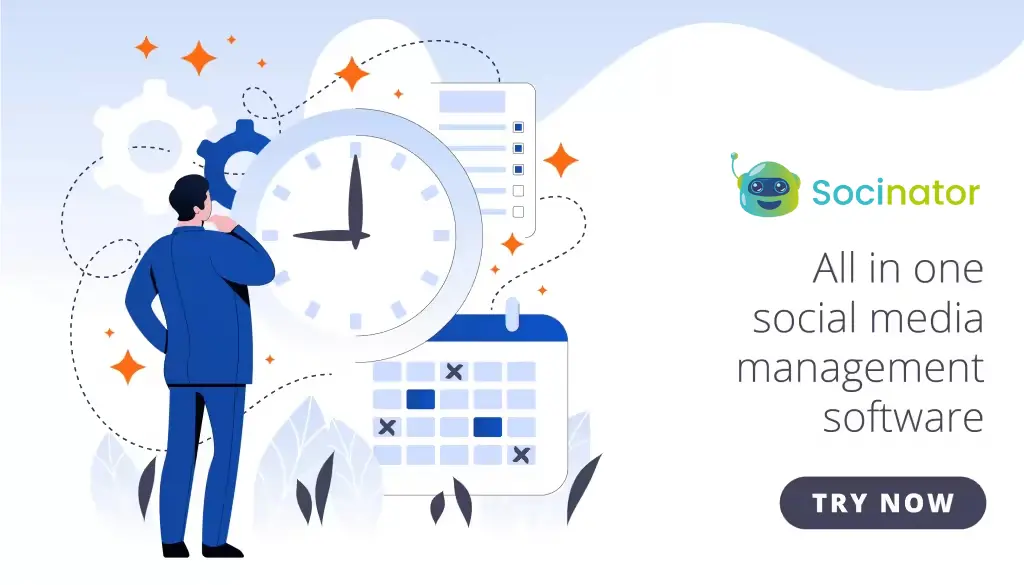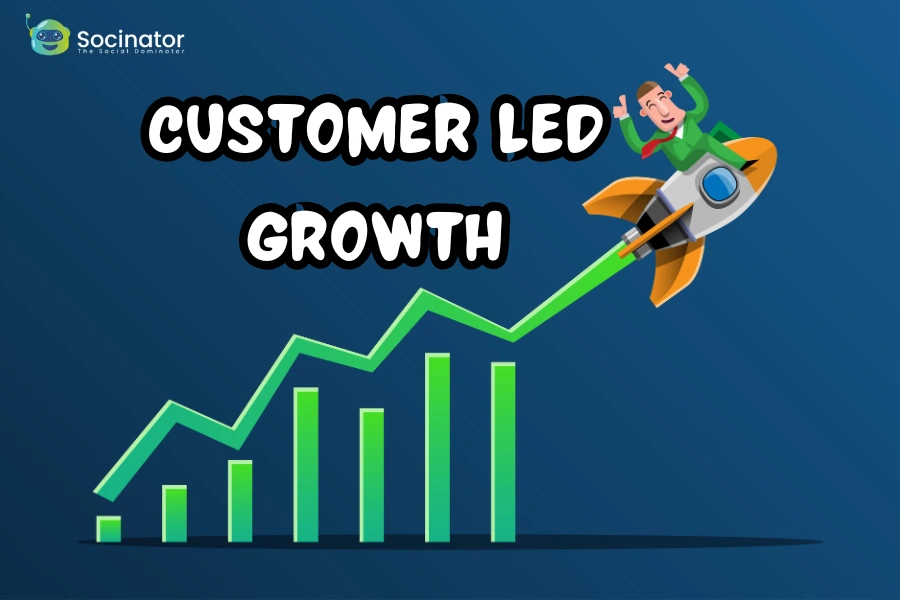As our lives become more digital by the day, the classification of platforms often blurs the lines between streaming services, search engines, and social networks. One common question among marketers, creators, and users alike is: Is YouTube social media?
Let’s explore what defines social media and where YouTube fits into the broader digital ecosystem. Along the way, we’ll also examine how businesses are leveraging this powerful platform using tools like YouTube marketing automation.
Hit ‘Play’ Button & Tune Into The Blog!
What Is Social Media?
 To determine the answer to the question “Is YouTube social media?” we first need to understand what defines a social media platform. At its core, social media is built on the ability to create content, share it widely, and engage in interactive communication through likes, comments, messages, and real-time feedback. It’s about more than just broadcasting; it’s about connection and community.
To determine the answer to the question “Is YouTube social media?” we first need to understand what defines a social media platform. At its core, social media is built on the ability to create content, share it widely, and engage in interactive communication through likes, comments, messages, and real-time feedback. It’s about more than just broadcasting; it’s about connection and community.
Platforms like Facebook, Instagram, TikTok, and Twitter are well-known examples. They thrive on two-way interaction. Users post content, others respond, and discussions emerge, creating a constant flow of engagement that’s deeply social.
So when we ask, Is YouTube a social media, we need to examine how it compares. Does it enable user-generated content? Yes. Does it foster interaction through comments, likes, and subscriptions? Absolutely. But does it prioritize community and real-time interaction the same way as traditional social platforms? Let’s explore that next.
Understanding YouTube’s Core Functionality
YouTube is mainly known as a video-sharing platform. It allows users to upload their videos, interact through likes, dislikes, and comments, and subscribe to channels they enjoy. This structure encourages both content creation and viewer feedback, two essential features found in most social media platforms.
And that brings us back to an important question: Is YouTube considered social media based on its features like video sharing, interaction, and community building?
By definition, it is YouTube includes all the key elements of a social platform: user-generated content, public interaction, and community engagement. However, what sets it apart is how it delivers these features.
Unlike platforms focused on short posts or quick interactions, YouTube revolves around longer video content. It combines aspects of social networking with video discovery and entertainment, making it a unique blend of social media and video-based search.
So while the answer to is YouTube social media may be yes, the platform’s format and purpose give it a distinct identity within the digital environment.
Is YouTube A Social Media Platform Or Just A Search Engine?
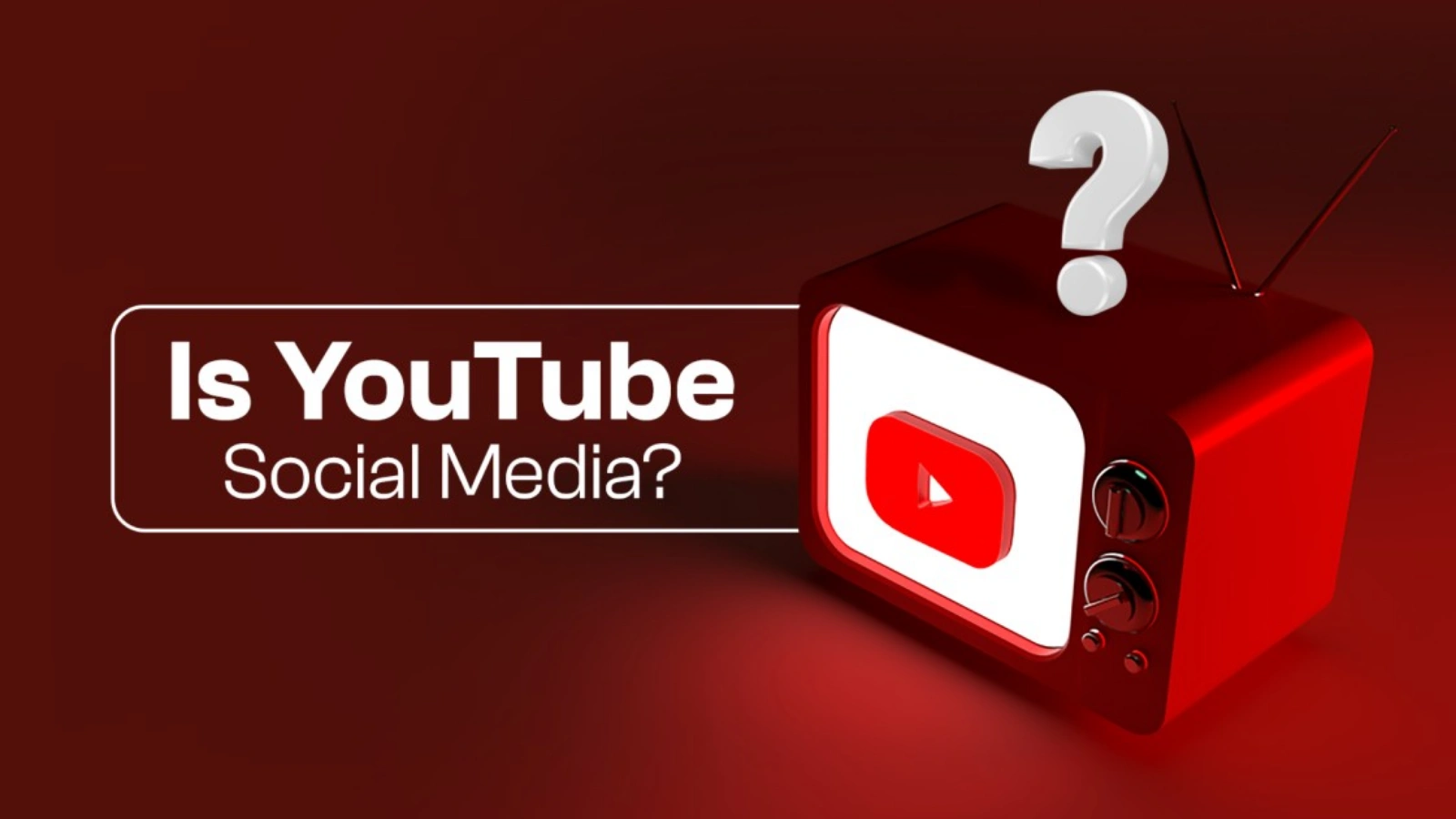 This question sparks a lot of debate: Is YouTube social media, or is it more accurately described as a search engine? On one hand, YouTube is closely tied to Google and operates as the world’s second-largest search engine, just behind Google. People rely on it not just for entertainment, but for answers, education, and product research.
This question sparks a lot of debate: Is YouTube social media, or is it more accurately described as a search engine? On one hand, YouTube is closely tied to Google and operates as the world’s second-largest search engine, just behind Google. People rely on it not just for entertainment, but for answers, education, and product research.
Here’s how most people commonly use YouTube:
To Search For Tutorials:
YouTube has become the go-to platform for step-by-step guidance on almost anything. Whether someone wants to bake a cake, set up a home Wi-Fi router, or write code in Python, they simply type in a few keywords and get access to countless how-to videos. The visual format helps learners follow along easily, making it more effective than text-only instructions.
To Watch Product Reviews:
Before spending money, today’s consumers often turn to YouTube to see real people use and review products. Whether it’s the latest smartphone, makeup brand, kitchen gadget, or software tool, YouTube creators often provide in-depth, honest reviews, unboxings, and demonstrations.
This type of content helps users make informed buying decisions and builds trust, another reason the question is YouTube social media continues to gain relevance.
To Learn New Skills:
YouTube functions like a virtual classroom for millions. From learning a new language to mastering Photoshop or picking up a new instrument, educational content is available in abundance.
Many creators specialize in niche topics, offering beginner to advanced levels, which allows viewers to learn at their own pace and revisit lessons whenever needed. This educational versatility is one of the reasons people ask, is YouTube social media, since it serves both as a learning hub and a social platform.
To discover trends:
YouTube is often where trends are born. Viral videos, influencer challenges, music releases, and breaking news all spread rapidly through the platform. It significantly influences pop culture, drives social conversations, and impacts consumer behavior. Users often explore trending content or follow well-known creators to stay updated.
However, that doesn’t cancel out YouTube’s social media DNA. Features like:
- Likes and dislikes that express viewer opinions
- Comments sections where conversations unfold
- Channel subscriptions that build ongoing relationships with creators
- Content sharing across platforms
All point to community-driven engagement, which is a hallmark of social media platforms.
So, is YouTube social media or a search engine?
In truth, it’s both. YouTube is a hybrid platform, serving as a powerful video search engine while also functioning as a social network where creators and viewers engage, connect, and build communities.
Also Read:
7 User Generated Content Platform You Should Know About
How YouTube Builds Real Communities, Not Just Audiences?
What truly sets YouTube apart from traditional media platforms is its powerful ability to foster real communities. Unlike one-way broadcasting models, YouTube thrives on interaction. Creators don’t just attract viewers, they build loyal fan bases and cultivate tribes centered around shared interests, passions, and niche topics.
Through features like the comments section, community tab, and live chats, creators stay closely connected with their audience. These tools allow for direct communication, updates, polls, and casual check-ins, making followers feel heard and involved.
Live streaming and features like Super Chat take engagement even further, enabling real-time conversations and direct support during broadcasts. Whether it’s a beauty tutorial, a gaming stream, or an educational Q&A, these live interactions help build trust and emotional connection.
That’s why the question is YouTube social media has a strong case behind it. It’s not just a platform for consuming content; it’s a space where people gather, engage, and build lasting digital communities. The constant two-way communication, emotional bonding, and shared experiences make YouTube undeniably social.
Is YouTube A Social Media Platform For Businesses?
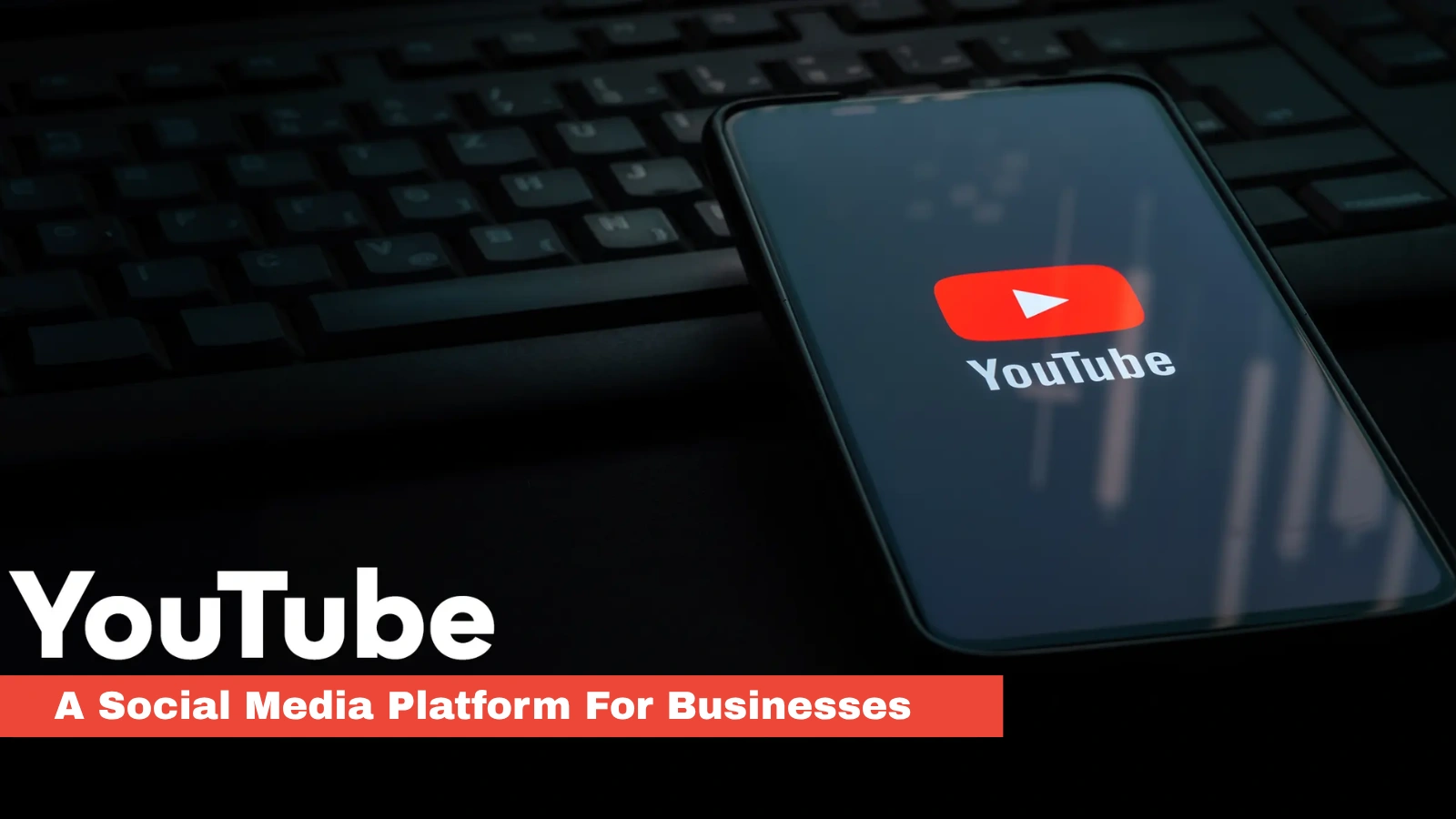 From a marketing standpoint, businesses view YouTube as a critical channel for brand storytelling and customer engagement. But is YouTube a social media platform suitable for all businesses?
From a marketing standpoint, businesses view YouTube as a critical channel for brand storytelling and customer engagement. But is YouTube a social media platform suitable for all businesses?
Absolutely.
Whether you’re an e-commerce brand or a SaaS company, YouTube lets you:
Educate your audience with explainer videos:
Explainer videos help break down complex topics or products into simple, engaging content. They’re great for educating viewers while building trust in your brand or expertise.
Share customer testimonials:
Video testimonials from real customers add authenticity and emotional impact. They serve as powerful social proof that influences buying decisions, yet another reason why people ask is YouTube social media.
Launch product demos:
Product demo videos give potential customers a firsthand look at how your product works. They highlight features, solve objections, and bring your offering to life in a visual way.
Run targeted ad campaigns:
YouTube’s advanced ad targeting lets you reach specific audiences based on interests, behaviors, and search history. This ensures your message reaches the right people at the right time with maximum impact.
The best part? The platform’s comments and community features allow for real-time feedback, Q&A, and viewer interaction, reinforcing its identity. These social components are exactly why marketers often ask, Is YouTube social media, and the answer becomes clearer with every campaign: it functions like one.
Why YouTube Is Social Media For Creators?
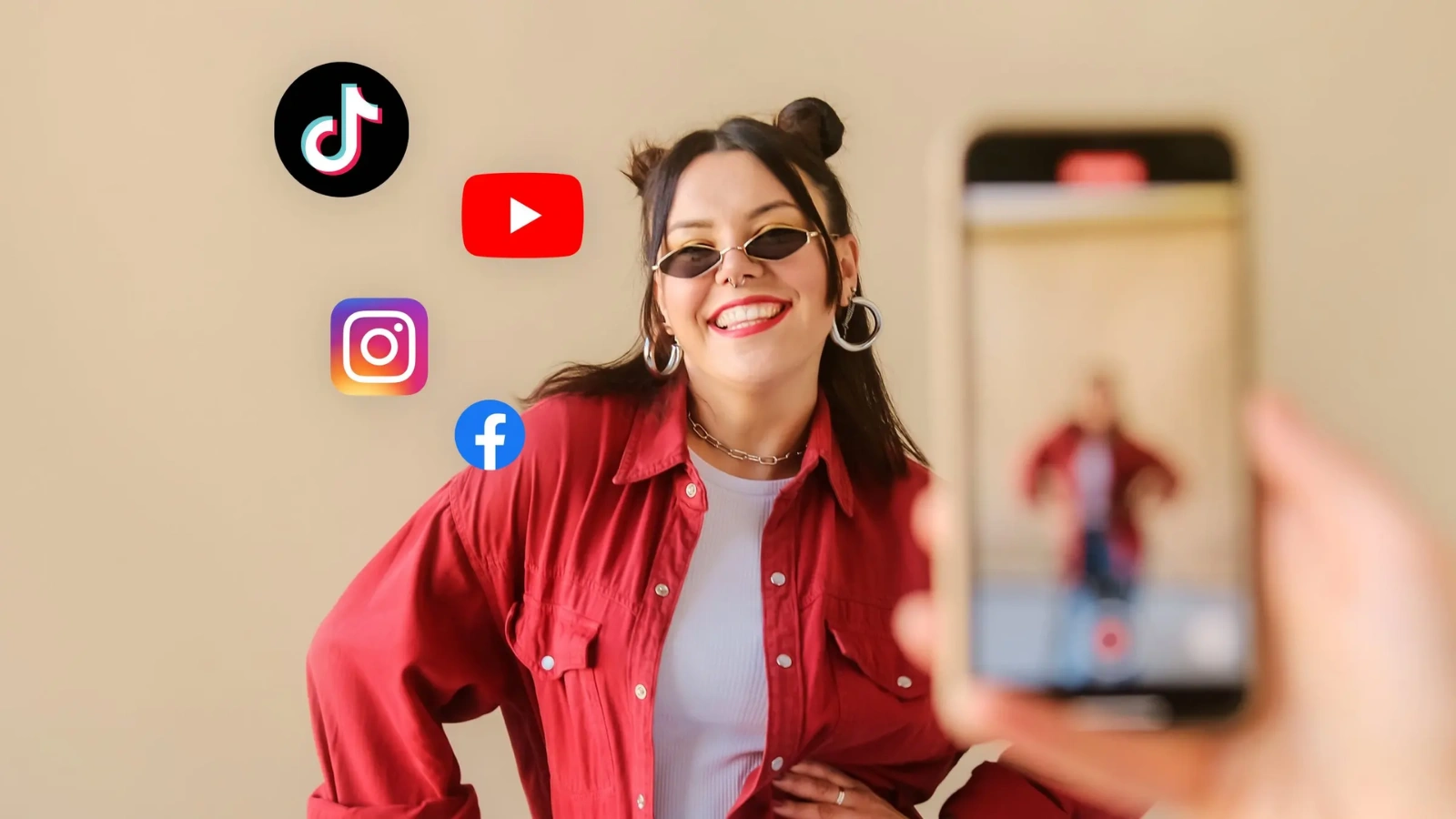 Ask any content creator, and they’ll likely tell you that YouTube is social media for them. It provides a platform for sharing personal stories, building fan bases, exploring creative YouTube video ideas, and earning through multiple monetization channels.
Ask any content creator, and they’ll likely tell you that YouTube is social media for them. It provides a platform for sharing personal stories, building fan bases, exploring creative YouTube video ideas, and earning through multiple monetization channels.
YouTube creators often use:
- Comments and polls for feedback:
Use comments and polls to gather opinions, spark discussions, and understand what your audience wants more of. Another reason people ask is YouTube social media. - Collaborations to expand reach:
Partnering with other creators helps you reach new audiences and grow your subscriber base through shared exposure. - Hashtags and tags for discoverability:
Hashtags and tags boost your video’s visibility in search and recommendations, making it easier for viewers to find your content. - Community posts to stay connected with subscribers:
Community posts let you engage with subscribers between uploads through updates, polls, and casual interactions.
This consistent two-way engagement is a strong indicator when asking, Is YouTube social media, because these interactive tools reflect exactly what defines a social platform.
How To Use YouTube For Marketing: 5 Proven Strategies That Work?
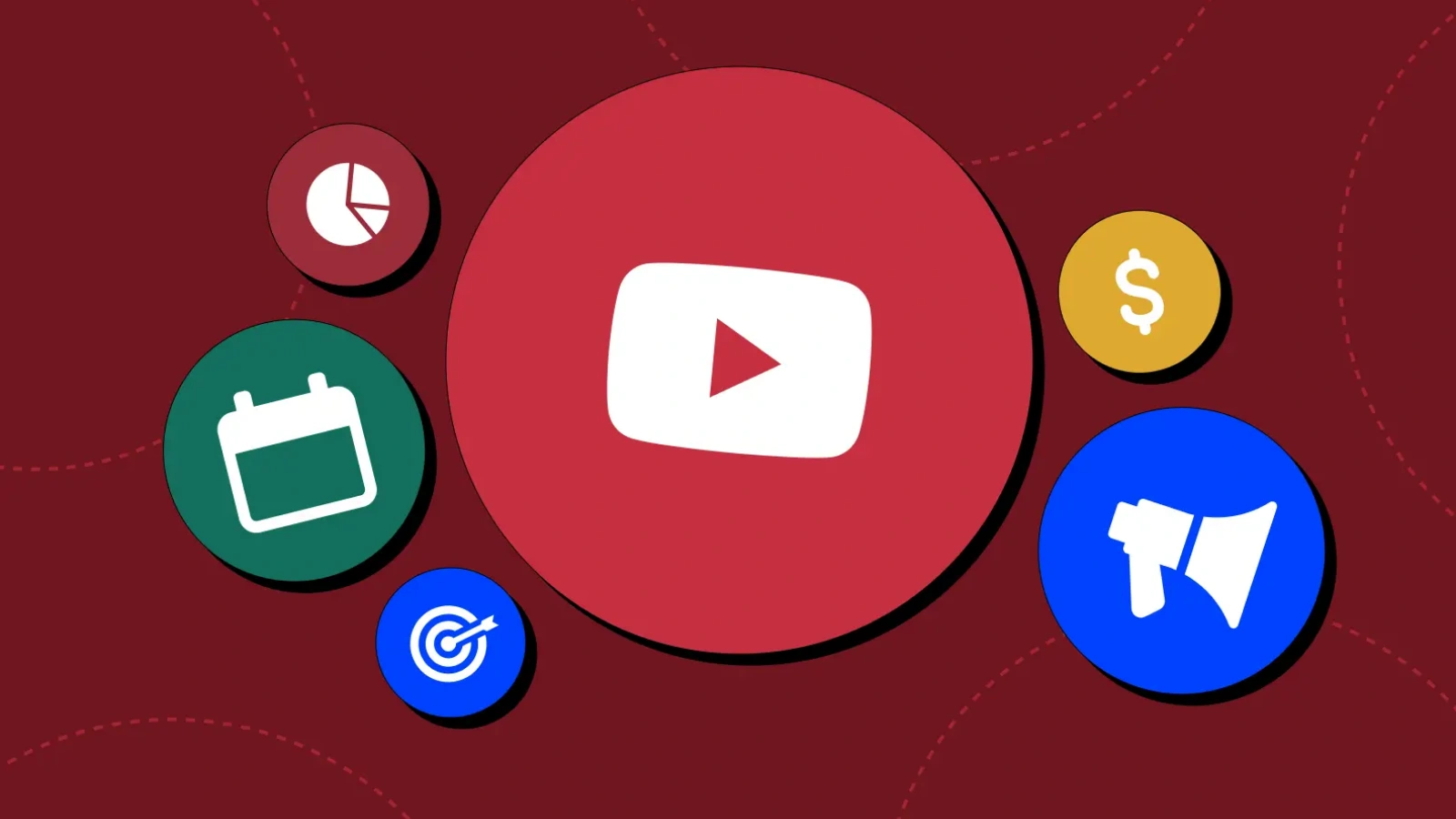 YouTube for marketing isn’t just about uploading videos; it’s about building brand visibility, engaging your audience, and driving measurable results. With over 2 billion monthly users, YouTube offers massive potential for marketers when used the right way. Here’s how to make it work for your brand:
YouTube for marketing isn’t just about uploading videos; it’s about building brand visibility, engaging your audience, and driving measurable results. With over 2 billion monthly users, YouTube offers massive potential for marketers when used the right way. Here’s how to make it work for your brand:
Create Engaging Videos:
Quality matters. Craft videos that tell a story, provide value, or entertain. Whether it’s tutorials, behind-the-scenes content, or product overviews, the key is to connect with your target audience through clarity and creativity.
Optimize for Search (SEO):
YouTube is the world’s second-largest search engine. Incorporate relevant keywords into your video titles, descriptions, and tags for better visibility. Add closed captions and design compelling thumbnails to boost discoverability and click-through rates. These elements also support why many ask, Is YouTube social media.
Engage With Comments:
Social interaction is what sets YouTube apart. Reply to comments, pin important messages, and encourage feedback to build relationships and improve your content based on real viewer insights.
Use Playlists Strategically:
Group related videos into playlists to guide viewers through your content journey. This keeps people on your channel longer and supports engagement, fueling the debate around is YouTube social media.
Go Live for Real-Time Engagement:
Live streaming is a powerful tool to humanize your brand. Use it for product launches, Q&A sessions, or live events; it fosters instant connection and drives authentic engagement.
Using YouTube for marketing allows businesses to connect emotionally, educate effectively, and grow organically. With features like live chat and community feedback, it’s no surprise that many marketers ask, Is YouTube social media? The platform’s ability to spark real-time conversations makes a compelling case that it is.
How YouTube Marketing Automation Can Save You Time & Effort?
As YouTube continues to grow, managing content and engagement manually becomes unsustainable. This is where a YouTube marketing automation software becomes essential, helping creators and brands automate publishing, engagement, and tracking without losing a personal touch.
Automation streamlines:
- Video publishing
- Keyword tagging
- Comment moderation
- Analytics tracking
By integrating smart tools, businesses and creators can scale their presence while maintaining a personalized approach.
If you’re looking for a powerful yet easy-to-use tool to simplify your YouTube and social media automation, Socinator is a top choice. It’s more than just a scheduler; it’s an all-in-one platform designed to manage multiple social channels, automate tasks, and track performance effortlessly. Whether you’re a creator or brand, Socinator helps you stay consistent and organized while maximizing engagement across platforms.
Also Read:
15 Best YouTube Video Ideas To Gain More Views
Benefits Of YouTube Automation Tools
Let’s talk about the advantages of using automation tools and explore how they support the ongoing debate around is YouTube social media:
- Saves Time: Schedule content and manage workflows.
- Consistency: Publish videos regularly, even across time zones.
- Improved SEO: Automated keyword suggestions and tagging.
- Audience Insights: Real-time data to understand viewer behavior.
- Multi-Channel Management: Great for agencies handling multiple clients.
The right YouTube automation tool doesn’t just simplify your workflow; it helps you grow faster while staying consistent. A solution like Socinator can help you do exactly that, offering advanced automation features tailored for modern content creators and marketers.
How Can Socinator Simplify Your YouTube Social Media Strategy?
Socinator is an all-in-one social media automation tool designed to help creators, marketers, and businesses manage their digital presence more efficiently. With a clean interface and powerful automation features, it streamlines content management, boosts engagement, and saves time across multiple platforms, including YouTube.
As YouTube cements its role in the social media ecosystem, managing your channel efficiently becomes essential. Socinator makes this process easier with powerful automation features built for creators and marketers:
Multi-Platform Control:
Manage YouTube alongside 8+ other platforms like Instagram, Facebook, and LinkedIn from one streamlined dashboard.
YouTube-Specific Automation:
Automate key actions like video scheduling, auto-likes, comments, subscriptions, and channel management to stay active without manual effort.
Content Scheduling:
Plan and publish videos or social posts ahead of time to maintain a consistent and professional content calendar.
Audience Targeting:
Use intelligent filters to reach the right viewers, ensuring your content is seen by the people most likely to engage.
Engagement Automation:
Automatically interact with your audience through likes, comments, and follows to build a loyal community around your content.
Real-Time Analytics:
Track your performance across platforms with insightful data to refine your strategy and boost engagement.
With tools like Socinator supporting your YouTube efforts, it’s easier than ever to treat YouTube not just as a video site, but as a fully-fledged social media platform built for growth.
Conclusion
So, Is YouTube social media? Absolutely, but it’s also much more than that. YouTube blends the best of social networking, search functionality, and content sharing. With interactive features like comments, community posts, live chats, and real-time engagement, it functions as a social media platform at its core.
For creators and marketers aiming to stay consistent, scale effortlessly, and build communities, YouTube offers a massive opportunity. But as content demands grow, automation becomes essential.
Power your YouTube growth today with Socinator’s smart automation features.
FAQs
1. What’s the ideal video length for YouTube engagement?
Ans. The ideal length is usually 7 to 15 minutes, which keeps viewers engaged without overwhelming them. If you’re wondering is YouTube social media, note that engagement metrics like watch time heavily influence visibility, just like on other social platforms.
2. Can you monetize YouTube Shorts like regular videos?
Ans. If you’re part of the YouTube Partner Program, you can earn from Shorts through ad revenue sharing. Features like comments, likes, and shares also support the idea that is YouTube social media isn’t just a question; it’s backed by social interaction.
3. What are the best days and times to post on YouTube?
Ans. Thursdays and Fridays around 2–4 PM (viewer’s local time) often see better performance. Post before peak hours to gain early traction.

